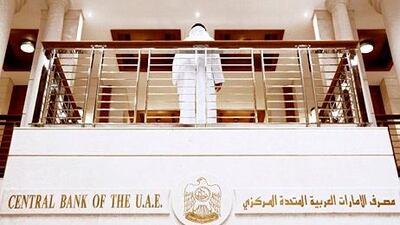The UAE Banks Federation has recommended that the Ministry of Justice establish special courts to hear complaints against customers brought forward by the financial sector.
“The federation has proposed to the Ministry of Justice setting up specialised commercial courts to consider the cases raised by banks and financial institutions,” the lobby group said in a statement yesterday detailing its activities last year.
The Ministry of Justice, the Central Bank and the UAE Banks Federation have formed a joint committee to evaluate legal banking experts who could sit as judges in the proposed courts.
The establishment of commercial courts could help to clear the large number of suits currently heard by the civil and commercial chambers, said Mazen Boustany, the head of banking and finance at the law firm Habib Al Mulla & Company.
“The judges are not specialised,” he said. “They take any kind of civil and commercial cases … the judges are generalists, rather than specialists in the very specific areas of the law like banking.”
The reliance on specialists tends to slow down banks’ ability to pursue commercial lawsuits, he added.
Although the establishment of such courts would not hear claims related to personal finances – such as bounced cheques – the development of faster methods of resolving claims would make banks less willing to pursue criminal penalties against defaulted debtors, Mr Boustany said.
Bouncing a cheque is a criminal offence in the Emirates, although nationals are immune from serving jail time.
A total of 1.4 million cheques failed at the point of use, representing payments of Dh46.8 million (US$12.7m) and about one in five of all cheques used, according to data from the Central Bank.
Banks and vendors of cheque-clearing devices say technical factors are not to blame for the high failure rate in the UAE, which is about 10 times that of the United Kingdom.
The UAE Banks Federation also said it had “initiated and raised recommendations to the Central Bank on the foreign account tax compliance act for US citizens for implementation on a government level through signing an agreement between the two countries.”
The law – which obliges all foreign banks to disclose American account holders to the United States tax authorities or pay a hefty withholding fine if they wish to access the country’s financial system – has been the cause of consternation among local banks.
RAKBank warned customers last year that it was reviewing whether it would close US customers' accounts to comply with the regulations.
Many countries’ governments have attempted to reach accords with the US over the legislation, although the treasury department said six members of the GCC were yet to enter negotiations at the end of last year.

